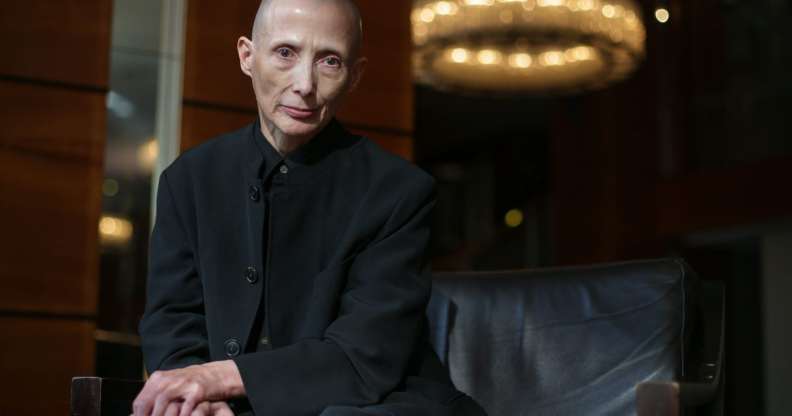Court rules against gender-neutral passports and says people must define as either male or female

Christie Elan-Cane. (DANIEL LEAL-OLIVAS/AFP/Getty)
The UK’s Court of Appeal has ruled against campaigner Christie Elan-Cane in per fight for a gender-neutral passport.
Christie Elan-Cane had challenged the legality of the UK government’s passport policy, which requires that either a “M” or “F” gender marker appear on every UK passport.
The court said that the policy is not unlawful, but emphasised that people whose gender identity is non-gendered or non-binary have a right to respect.
Elan-Cane is a non-gendered activist who has campaigned for a third gender option on British passports for more than 25 years. Elan-Cane uses per as a gender-neutral pronoun, similar to how some people use they/them pronouns.
Christie Elan-Cane said: “Legitimate identity is a fundamental human right but non-gendered people are treated as though we have no rights. It is unacceptable that someone who defines as neither male nor female is forced to declare an inappropriate gender in order to obtain a passport.
“This decision is devastating to me. It is bad news for everyone who cannot obtain a passport without the requirement imposed by the UK government that they should collude in their own social invisibility.”
A gender-neutral passport with an ‘X’ gender marker is available in Argentina, Canada, Iceland, India, Malta, Nepal, New Zealand, Pakistan, Uruguay, most of Australia and in multiple US states.
Elan-Cane told judges at a December 2019 hearing that the UK’s passport application process is “inherently discriminatory” and breaches human-rights law because it forces individuals to choose either male or female, and does not have an option for non-binary or non-gendered individuals.
The activist wanted a passport that either didn’t specify per gender or a passport with a third gender option, in addition to male and female.
At a December hearing, Kate Gallafent QC, for Elan-Cane, told judges: “This is an important case in the anxious context of the proper understanding and respect for the intimate, human rights of the affected class – persons whose gender identity is neither, or neither exclusively, male nor female.
“There is little which is more fundamental and deeply personal than an individual’s gender identity.”
But the Court of Appeal has ruled in favour of the Home Office, saying that there was no positive obligation on the government to provide “X” gender markers in passports.
The judges ruled that the government has discretion to decide not to extend this right to non-binary people at the moment.
The government had argued that it wouldn’t provide “X” gender markers and gender-neutral passports in isolation, but would consider it as part of their wider approach to non-binary identities.
There is currently no legal recognition for non-binary people in the UK.
Liberal Democrat equalities spokesperson Christine Jardine said that if the government won’t introduce “X” gender markers in passports then parliament must do it.
“I find it utterly incomprehensible that this Conservative government is going to such extreme lengths to avoid a relatively small change that would make a big difference to so many people’s lives,” Jardine said.
“We must combat the hostility and discrimination that prevents too many people from living freely and fulfilling their potential.
“If the government continues to refuse to introduce an ‘X’ gender option on passports, parliament must act to introduce it through legislation.”
The appeal focused on the lawfulness of the government’s approach, with Elan-Cane arguing that the current policy breached per rights to respect for private life and the right not to be discriminated against on the basis of gender or sex, under the European Convention on Human Rights.
Elan-Cane took per case to the Court of Appeal after per judicial review into gender-neutral passports was dismissed by High Court judges in June 2018.
Elan-Cane confirmed on Twitter that per will seek permission for the case to be heard at the Supreme Court.

